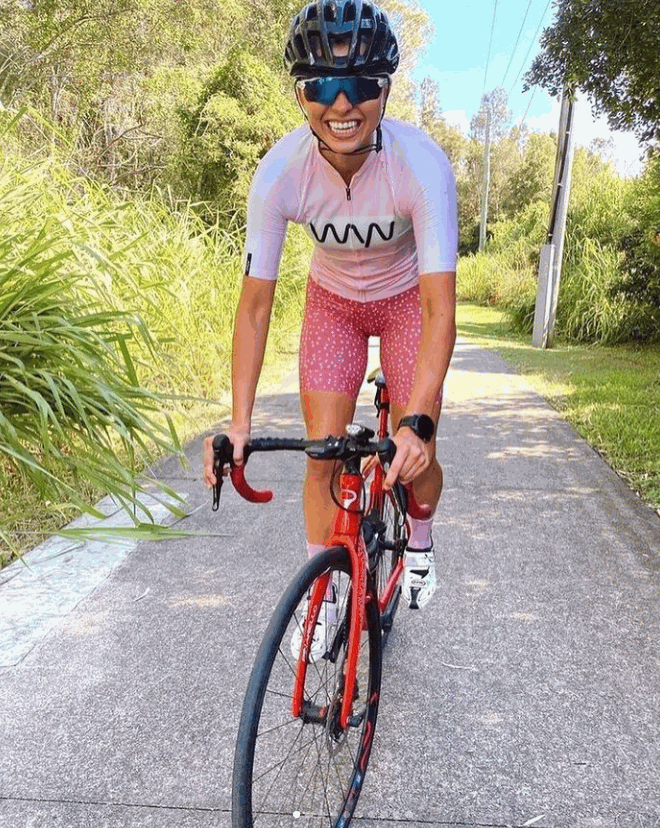“It can be difficult, and situations can go from zero to one hundred fairly quickly, and it’s so important to understand that this is part of the brain injury,”
Alexa Leary, the inspiration behind the #MoveForLex movement).
Throughout our lives we all experience defining moments that change the course of our future. This can range from something we are proud of, like graduating from university to something we’re ashamed of, like being caught stealing. For Alexa, it hasn’t been either of these moments, but she has had one such life-changing event, an accident which caused an acute brain injury.
Mairead Hegerty, fourth-year Bachelor of Occupational Therapy (Honours) student, was fortunate enough to interview Alexa Leary, and her father Russell, about what changes they have experienced following Alexa’s injury. As part of her program, Mairead was asked to create awareness and social change around a specific subject, she chose brain injury. Below is Mairead’s interview with Alexa and her father Russell.
Make sure to check out Alexa’s Instagram page for inspirational content and updates.
 Alexa (or Lex as she likes to be called), experienced a life-changing accident whilst on a triathlon training ride in 2021. Cycling at 70km/h, she clipped the wheel of another rider and was thrown from her bike, resulting in a severe brain injury. Alexa was only 19 years old at the time and spent several months in various hospitals throughout Southern East Queensland recovering from the acute injury.
Alexa (or Lex as she likes to be called), experienced a life-changing accident whilst on a triathlon training ride in 2021. Cycling at 70km/h, she clipped the wheel of another rider and was thrown from her bike, resulting in a severe brain injury. Alexa was only 19 years old at the time and spent several months in various hospitals throughout Southern East Queensland recovering from the acute injury.
Driving back from her week of swimming training on the Gold Coast, Lex was able to give me some insight into what it’s like to live with a brain injury – and what she wanted other people to know.
She highlighted how important it is for people to understand how much a brain injury can impact someone’s day-to-day life.
“Old Alexa used to be so functional – now I can’t remember anything, and when people find out they act like it’s nothing. They’ll say, ‘oh okay’, but for me this is for life – it’s big for me. People aren’t aware of it,” she said.
Lex also gave some insight into the behind-the-scenes changes that other people in her life aren’t privy to. Specifically, how she must organise her entire day through her phone. She does this by setting reminders throughout the day, tracking her phone so she doesn’t lose it, texting herself that she’s completed a task. All of these are additional activities that Lex never had to consider prior to her injury.
Lex’s dad Russell also wanted to highlight how much brain injuries can impact someone’s mood. His biggest tip for parents of those with brain injuries is to be aware of ‘anger spurts’.
“It can be difficult, and situations can go from zero to one hundred fairly quickly, and it’s so important to understand that this is part of the brain injury,” he said.
Russell also spoke about how invisible brain injuries can be. He shared that people in public won’t recognise that Alexa has a brain injury easily. So, it’s important to have resources available to let people know what brain injury is, and the changes it can cause.
He also mentioned Alexa’s ambassadorship for a Disability Card for individuals with brain injury. He stated how important it is for individuals with brain injury to easily let others know about their condition.
 Alexa has also found changes relating to work and her training after her brain injury incredibly difficult at times.
Alexa has also found changes relating to work and her training after her brain injury incredibly difficult at times.
“That was my everything… My goal was always triathlons and the Olympics,” she said.
She noted how hard it had been getting her motivation back, and that she has been told by doctors that she wasn’t allowed to return to work for 3 years.
“I want to work, but I can’t,” she said.
For people with brain injury, returning to work can be an incredibly difficult experience.
It’s crucial for employers to be aware of the limitations and requirements when dealing with employees who have been impacted with brain injury. Employers need to make accommodations such as rest breaks, allowing carers to attend the workplace and provide training programs that clearly outline the roles required of employees at work.
By appropriately accommodating individuals with brain injuries in the workplace, the injury itself will not be such a barrier to individuals seeking employment. It is everyone’s right to participate in equal and fair work – and that includes those living with brain injury too.
Overall, my conversation with Lex and Russell really opened my eyes to what it is like to live with a brain injury. Lex left me with her top tip for those who are going through brain injury themselves,
“After being in hospital then being out of hospital – a nice rehab thing to do is Lego and puzzles, colouring in, that sort of thing.”
It’s incredibly important that we as members of the public learn more about brain injury and how we can accommodate those experiencing it in our everyday lives. As students working in healthcare, it’s imperative we continue to advocate for those living with brain injury, and other invisible illnesses, so they can effectively return to life in the community.

